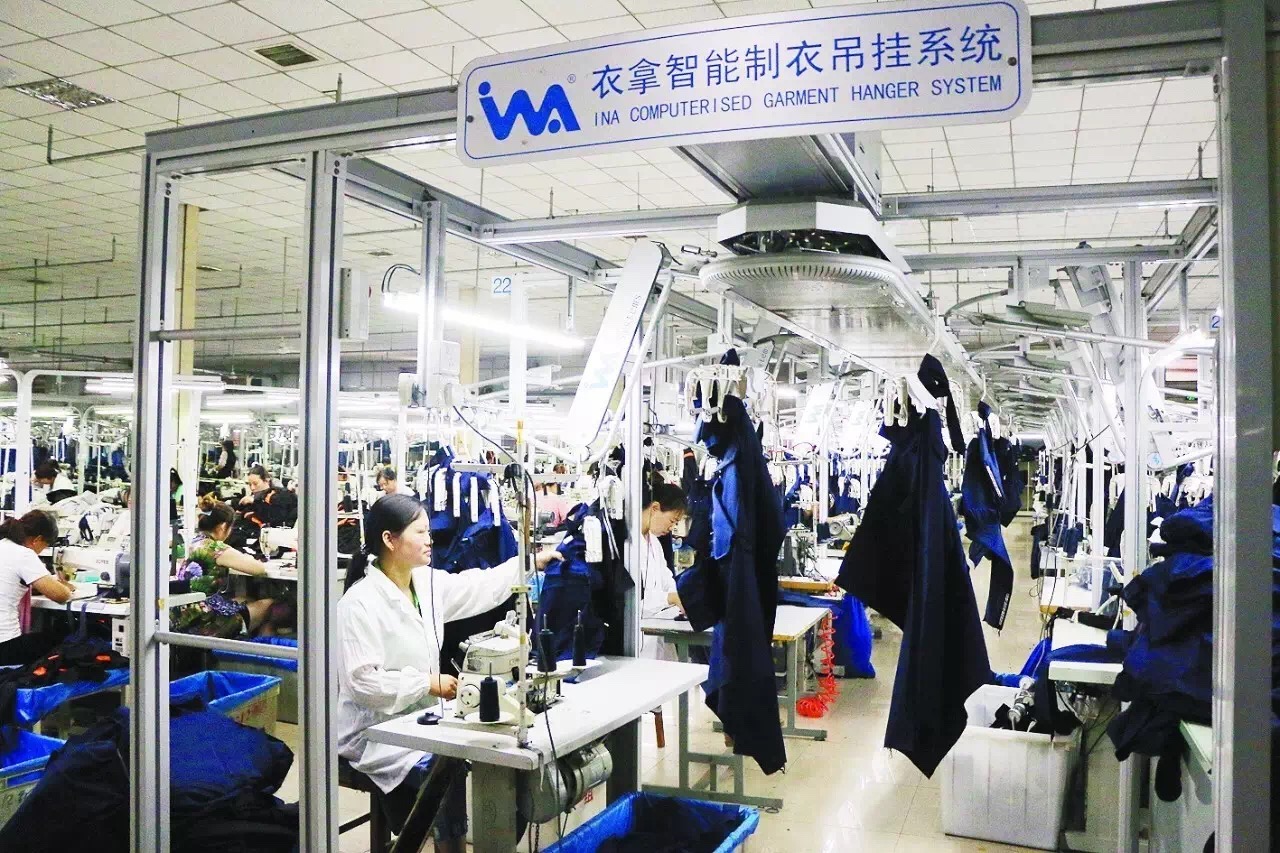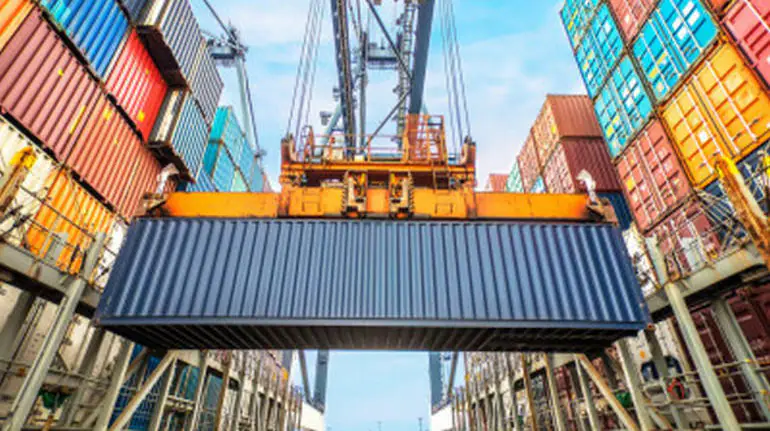FW
A beacon of fashion innovation and sustainability, The Indian Fashion Forum (IFF) convened at Conrad Bengaluru on February 21-22, with The Lycra Company standing at the forefront as the ‘Fiber Innovation Partner.’ This prestigious event showcased cutting-edge developments in the apparel and personal care industries, unveiling groundbreaking advancements and exploring the nexus of innovation and sustainability.
Rishi Suri, Business Development Director - South Asia, The Lycra Company, unveiled the latest fiber technologies, setting the stage for a discourse on fashion's future. He joined a panel discussion on Fashion Innovation and Sustainability. The esteemed panel, comprising luminaries such as Dr M M Hundekar, from Green Fashion India, Dr Sunder Balakrishnan of Natur-Tec India, Harita Choudhary Kaul from Benetton India, Mansi Lohia, CEO, Blackwatermelon, and Puneet Dudeja, Director - Business Development for South Asia at WGSN, delved into strategies aimed at mitigating environmental impact and fostering ethical practices.
As the dialogue unfolded, diverse perspectives converged on the imperative for sustainable practices in fashion. The discussion navigated through strategies, technologies, and approaches designed to reconcile innovation with environmental stewardship, resonating deeply within an industry striving for sustainability.
The event's climax, the Images Fashion Awards on February 22, saw Fabrizio Maggi, Commercial Director-South Asia and EMEA Distribution, The Lycra Company, grace the stage to present one of the prestigious accolades. His presence underscored the company’s commitment to recognise excellence and fostering industry growth.
Since its inception in 2000, the India Fashion Forum (IFF) has grown into the foremost platform for fashion retail intelligence in India. With over two decades of curated knowledge sharing and peer-to-peer networking, IFF has become synonymous with innovation, serving as a crucible for industry transformation.
A recent study conducted by Cornell University and Schroders, in collaboration with Mapped in Bangladesh (MiB) and Cornell University's School of Industrial and Labor Relations (ILR) Global Labor Institute (GLI), sheds light on the severe impact of climate change on apparel production hubs, particularly in Bangladesh, Cambodia, Pakistan, and Vietnam.
Titled ‘Climate Resilience and Fashion's Costs of Adaptation, the research unveils alarming projections: by 2030, these regions could suffer a loss of approximately $65 billion in export earnings and close to one million jobs due to climate-induced disruptions such as extreme heat and flooding.
Presenting the study's findings at an event in Dhaka, Jason Judd, Executive Director, GLI, emphasised the necessity for investors to engage with apparel companies and stakeholders. He stressed on the importance of addressing the current gap in risk management strategies, which often neglect adaptation measures crucial for mitigating climate-related risks.
The study delves into the supply chain footprint of six global apparel brands, revealing the profound impact of extreme weather conditions on workers and manufacturers. It highlights the urgent need for social protection mechanisms and climate adaptation finance to safeguard the livelihoods of apparel workers and mitigate the adverse effects of climate change.
Judd underscored the need for establishing social protection mechanisms and securing climate adaptation finance to shield apparel workers from the impacts of climate change. Furthermore, he called for a collective response, including global and national bargaining, to confront the challenges faced by the apparel sector.
Afshana Choudhury, Lead Operations Officer, MiB, emphasised on the significance of the study's policy implications in navigating the challenges posed by climate change in the fashion industry.
In the ensuing panel discussion, panelists provided diverse perspectives on the implications of the study for the Bangladesh RMG industry. Discussions ranged from economic and operational implications, brand responsibility, and collaborative efforts to address climate challenges, to the significance of labor rights and worker welfare in the face of climate change.
Presided over by Professor Mohammad Mahboob Rahman, Treasurer, BRAC University, the event facilitated engaging discussions on the pressing need for collective action and industry-wide change to confront the looming threats of climate change in the apparel sector.
Disclosing its UK operations’ financials, renowned Spanish fashion retailer, Mango recorded a robust performance for the year ending in 2023.
During the year, Mango inaugurated many new stores across the country. The brand’s turnover surged by £16.4 million, marking a notable increase compared to the preceding year's £31.5 million. Total turnover for 2023 reached an impressive £120.8 million, with the gross margin experiencing a significant uptick to 47.1 per cent, from 41.83 per cent in the previous fiscal cycle.
The brand’s gross profit soared to £56.9 million, compared to £43.6 million recorded a year earlier, while the profit before tax surged to £5.4 million from less than £400,000 in 2022. Additionally, net profit witnessed a substantial ascent, leaping from a sub-£400k figure to £3.9 million.
The directors of brand expressed optimism regarding future growth prospects, notwithstanding prevailing economic uncertainties affecting demand levels.
Mango's proactive stance towards expansion, particularly evident in its plans to unveil more stores across the UK in the forthcoming year, is expected to bolster its performance further. This expansion drive also translates into job creation, with nearly 150 new positions generated during the period, primarily fueled by the opening of new stores.
Among its notable expansions in 2023 include the inauguration of a women's wear outlet in Manchester Trafford Centre, unveiling of a store at centre:mk in Milton Keynes. The brand also made its presence felt at Westfield Stratford City, besides securing plans to set up a new store at the Silverburn Mall in Glasgow.
Disclosing its UK operations’ financials, renowned Spanish fashion retailer, Mango recorded a robust performance for the year ending in 2023.
During the year, Mango inaugurated many new stores across the country. The brand’s turnover surged by £16.4 million, marking a notable increase compared to the preceding year's £31.5 million. Total turnover for 2023 reached an impressive £120.8 million, with the gross margin experiencing a significant uptick to 47.1 per cent, from 41.83 per cent in the previous fiscal cycle.
The brand’s gross profit soared to £56.9 million, compared to £43.6 million recorded a year earlier, while the profit before tax surged to £5.4 million from less than £400,000 in 2022. Additionally, net profit witnessed a substantial ascent, leaping from a sub-£400k figure to £3.9 million.
The directors of brand expressed optimism regarding future growth prospects, notwithstanding prevailing economic uncertainties affecting demand levels.
Mango's proactive stance towards expansion, particularly evident in its plans to unveil more stores across the UK in the forthcoming year, is expected to bolster its performance further. This expansion drive also translates into job creation, with nearly 150 new positions generated during the period, primarily fueled by the opening of new stores.
Among its notable expansions in 2023 include the inauguration of a women's wear outlet in Manchester Trafford Centre, unveiling of a store at centre:mk in Milton Keynes. The brand also made its presence felt at Westfield Stratford City, besides securing plans to set up a new store at the Silverburn Mall in Glasgow.
The Confederation of Indian Textile Industry (CITI) hosted the CITI Sustainability Awards 2024 on February 26 at Bharat Mandapam at the ongoing Bharat Tex 2024, where Piyush Goyal, Minister of Textiles and Darshana Jardosh, Minister of State for Textiles and Railways presented the awards to the winners.
In his address, Goyal emphasised on the crucial role of sustainability in the textile industry and commended the efforts of organisations and individuals for their exemplary contributions. He stated, CITI’s leadership has consistently provided unwavering support to the textile ministry. The organisation will undoubtedly inspire the youth to chart a roadmap for the country's growth, he added.
Showcasing various categories, the CITI Sustainability Awards 2024 celebrated excellence in distinct areas of sustainability. In the Best Practices category for textile mills with a focus on social responsibility and green practices, Indo Count Industries emerged as the winner, while Pratibha Syntex secured the first runner-up position.
Indo Count Industries also claimed victory in the Innovative Material Management category, with Jeyavishnu Clothing as the first runner-up.
Geethanjali Woolens won the title of Best Recycler, followed by Sulochana Cotton Spinning Mills as the first runner-up and Kakkar Spinning Mills as the second runner-up.
Brandix Apparel India d stood out in the Best HR Practices category, with Teejay India and Pratibha Syntex as the first and second runners-up, respectively.
The awards ceremony showcased the industry's commitment to sustainability, with winners demonstrating innovation, dedication, and positive impact. The recipients were lauded not only for their contributions to environmental conservation but also for their social responsibility initiatives and commitment to sustainable business practices.
Rakesh Mehra, chairman of the Confederation of Indian Textile Industry (CITI), states, these awards are a testament to the industry's relentless pursuit of sustainability. It is heartening to witness the transformative efforts made by textile companies, setting a benchmark for others to follow.
At a panel discussion organised by the German Consulate in Karachi, industry experts emphasised on the need for Pakistan's textile sector to transition to renewable energy sources. The panel discussion was held in collaboration with the Goethe Institut and the German development agency GIZ with insights gleaned from Heimtextil, a prominent global trade fair for textiles held in Frankfurt, were shared.
With Pakistan ranking as the fourth largest exhibitor at Heimtextil 2024, boasting over 270 companies showcasing innovations to a global audience, the discourse centered on renewable energy and innovative technologies' pivotal role in reshaping the textile landscape. Constituting about 60 percent of Pakistan’s exports and employing millions, the textile industry faces the challenge of transitioning towards sustainability.
Zaki Bashir, CEO, Gul Ahmed Textile, emphasised on the urgency of adopting renewable energy, citing Pakistan's vulnerability to climate change. This will offer dual benefits of reducing carbon footprint while cutting down energy expenses, he added.
Echoeing the sentiment, Hassan Tabba, CEO, Yunus Textile Mills, underlined the necessity for Pakistan to leverage its renewable energy potential to remain competitive amidst countries like Bangladesh and India with more favorable energy tariffs.
Acknowledging Pakistan’s delay in embracing renewable energy, Fawad Anwar, CEO, Al Karam Textile, urged governmental support to facilitate industry investments in sustainable practices.
Yulia Bazhenova, Head-Projects, GIZ, emphasised on the crucial role of cost-cutting measures and energy efficiency in achieving sustainability, citing international standards necessitating environmental and social responsibility in Pakistan's textile sector.
Zulfiqar Shah, Country Manager, Pakistan Accord, emphasised on the importance of collaboration between the industry, government and civil society to devise policies promoting renewable energy and sustainable practices.
Positioned prominently at Pragati Maidan in Hall 1GF, stall H1G:029, LMW's exhibits became a focal point for industry experts seeking state-of-the-art solutions and spinning technology expertise at Bharat Tex 2024.
LMW unveiled its cutting-edge LDF3 2S machine at the expo, drawing considerable attention for its advanced capabilities and operational efficiency.
Sankar M, Director-Operations, emphasised on the role of digitalisation, modernisation and automation in modern spinning mills. He highlighted LMW’s Sustainable Smart Series machines, integrating AI, IoT, Big Data, and analytics to enhance mill operations, reduce reliance on manual labor, and drive sustainability initiatives.
With a rich legacy of innovation spanning decades, LMW showcased its leadership in propelling industry advancements and shaping the textile landscape. The company's commitment to innovation was evident in its solutions that aimed to optimise efficiency, boost productivity, and enhance overall textile production quality.
The inaugural edition of Vietnam International Trade Fair for Apparel, Textiles, and Textile Technologies (VIATT) commenced in Ho Chi Minh City on February 28.
Co-organised by Messe Frankfurt and the Vietnam Trade Promotion Agency (VIETRADE) under the Ministry of Industry and Trade, the expo spans 15,000 sq m. It boasts over 500 booths representing more than 400 domestic and international enterprises from 16 countries and territories, including the UK, Germany, the US, and Japan.
A standout feature of the event is Vietnam's national brand pavilion, showcasing the prowess of domestic textile and garment brands. Among the array of products exhibited are apparel, home textiles, technical textiles, non-woven fabrics, and cutting-edge textile processing and printing technologies.
Over the course of three days, the event will organise a 14 symposiums and fashion shows, delving into practical topics such as design trends, market access strategies, and advancements in textile and non-woven fabric technologies.
Detlef Braun, Executive Board Member, Messe Frankfurt, says, the exhibition serves as a platform for textile businesses to forge trade connections, integrate into the global textile production chain, and establish links across the value chain, from raw materials to finished products.
Phan Thi Thang, Deputy Minister of Industry and Trade highlightes the transformative potential of VIATT for local businesses. The exhibition plays a pivotal role in fostering partnerships, enhancing localisation efforts, meeting diverse customer needs, and elevating the value of Vietnamese textile products, she adds.
Global brands participating in the event benefit from technology transfer and management expertise, thus contributing to the development of supply chains in Vietnam. The collaborative nature of the event facilitates knowledge exchange and capacity building within the Vietnamese textile sector, Thang emphasises.
In a bid to combat textile waste, Eastman has forged an alliance with outdoor apparel giant Patagonia. Together, they aim to repurpose 8,000 pounds of both pre- and post-consumer clothing waste.
Eastman will utilize its cutting-edge molecular recycling technology to process the discarded garments, breaking them down into molecular building blocks for the creation of new fibers.
Natalie Banakis, Patagonia's materials innovation engineer, stressed the urgency of addressing apparel waste, noting the growing consumer demand for sustainable solutions.
Meanwhile, Carolina Sister Cohn, Eastman's global marketing lead for textiles, emphasized the transformative potential of collaborations like these in revolutionizing the fashion industry's approach to sustainability.
Cohn expressed confidence in Eastman's technology to foster circularity within the textiles sector and highlighted the necessity of partnerships with forward-thinking brands to drive meaningful change.
The partnership marks a significant step towards a more sustainable future for fashion, with both companies committed to further collaborations throughout 2024 and beyond.
The Global Black Impact Summit (GBIS) 2024 in Dubai on February 27 showcased the profound influence of Black excellence in sports and fashion through two riveting panel discussions.
Moderated by Alycia Powell, Founder of Champions for Impact, the sports panel underscored the pivotal role of Black athletes in catalyzing societal transformation and fostering global unity.
Amadou Gallo Fall, President of the Basketball Africa League, emphasized sports' unparalleled potential for effecting change, citing initiatives like Luol Deng's basketball federation, which spurs economic growth and community empowerment across Africa.
Echoing this sentiment, Sara Rehane, Founder of Africa FC, highlighted the inspirational journey of African football icons like Didier Drogba, who leverage their prominence to advocate for peace and solidarity.
Meanwhile, the fashion panel, steered by Mayowa Adegoke, International Journalist and Speaker, delved into the imperative of representation and entrepreneurship in the fashion sphere.
Jefferson Osey, Co-founder and CEO of Daily Paper, elucidated the profound link between attire and identity, stressing the need for platforms amplifying Black voices and fostering intergenerational legacies.
Thando Magumise, Founder of Ntombi Couture Dubai, emphasized the business acumen requisite in the fashion domain, urging entrepreneurs to safeguard their intellectual property and champion diversity through Black-owned enterprises.
Both panels showcased the monumental impact of Black individuals, not solely as sports icons and fashion mavens, but as catalysts for social progress and economic empowerment within their communities and on a global scale.












